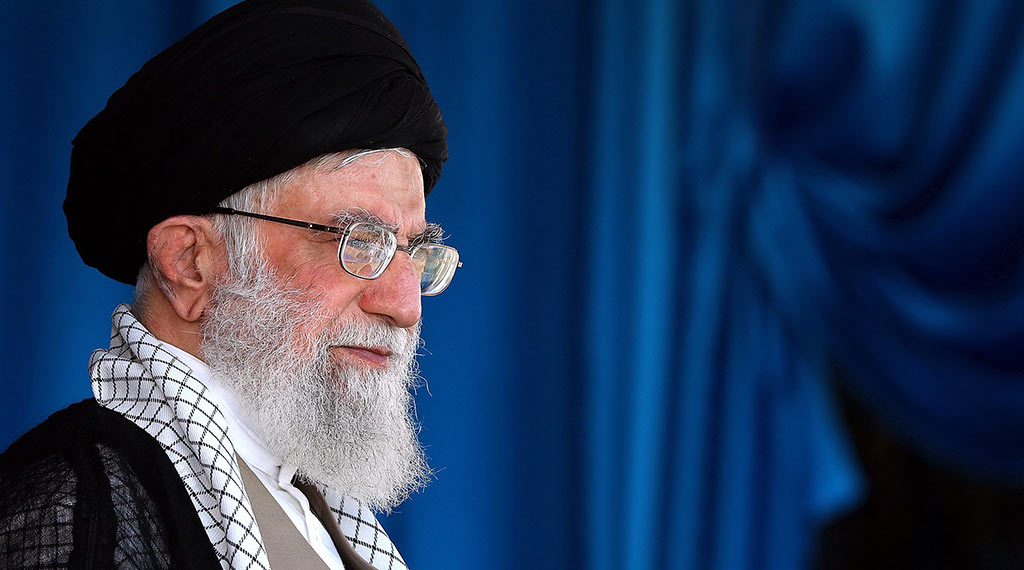The Supreme Leader consolidates the regime in Iran
By making Ibrahim Raisi president, Supreme Leader Ali Khamenei seeks to consolidate the shallow and deep states in Iran once and for all. Raisi, as Khamenei’s protégé, took it upon himself to do the dirty job of massacring political opponents to demonstrate his loyalty to the core values and objectives of the Islamist regime. Things are falling in place towards tighter consolidation as more hardcore Khamenei loyalists are appointed to high echelon government posts in Iran.
After taking office, Raisi installed as his vice-president another protégé of the Supreme Leader, namely Mohammad Mokhber, who for years has been at the helm of the deep state’s foremost economic institution, the Execution of Imam Khomeini’s Order (EIKO).
EIKO is an extremely powerful and wealthy institution affiliated with the Household of the Supreme Leader. It is tasked with funding Khamenei’s personal empire through mass confiscation and dubious investments. In 2013, Reuters estimated the value of the institute’s assets as $ 95 billion.
While EIKO had originally been established to carry out the founder of the Islamic Revolution’s order to confiscate property from the officials and affiliates of the former regime, the next Supreme Leader would, in addition, authorize it to confiscate the property of religious minorities such as Jews and Baha’is as well as Muslim immigrants. Under the new regime, EIKO became the foremost financial pillar of Khamenei’s deep state.
The Supreme Leader has always entrusted the presidency of EIKO to his closest affiliates. Since 2007, he has appointed Mohammad Mokhber the institute’s chief executive. The Mokhber era, which continues to this day, has been a time of unbridled expansion for the firm, which has exponentially increased its campaign of confiscation and investment across the country and even beyond.
Under the direction of Mokhber, along with the Revolutionary Guards’ Khatam-al Anbiya Construction Headquarters, EIKO, despite many legal ambiguities and numerous protests, managed to acquire the major shares of Telecommunication Company of Iran (TCI) in 2009. The move was seen by observers as an attempt by the Iranian deep state and the IRGC to completely control communications in Iran in the face of the massive anti-regime demonstrations earlier the same year.
EIKO had acquired a 48% stake in Pars Oil Company in 2000, which was named the largest stock exchange transaction of its time. During the Mokhber era, Pars became one of the only eight domestic companies that the Ministry of Oil has licensed to explore and produce oil in Iran.
Proceeds from the confiscations as well as revenues from the economic activities of EIKO are invested in an institution called the Barakat Foundation, which was established by Mokhber immediately after he came to presidency. The foundation claims that it uses the proceeds to develop the deprived areas of Iran. But it is in fact a money laundering front organization that hides its illegal activities under the cover of charity.
EIKO is one of the largest foundations in Iran that is not accountable to any government, judicial or legislative institution. A few years ago, the Islamic Consultative Assembly (Iranian parliament) made a resolution to exempt EIKO from any kind of financial investigation.
The resolution states that centers and organizations affiliated with the leadership should not be subjected to any investigation except with the permission of the Supreme Leader himself. Exploiting this exemption, EIKO has expanded the scope of its criminal activities over the years.
In June 2013, under the D’Amato Act, the US Department of the Treasury blacklisted EIKO and 37 affiliated companies for their circumvention of international sanctions against the Islamic Republic and involvement in the regime’s crackdown on dissidents and protesters, and froze its assets in the United States.
Earlier, in July 2010, the European Union had placed Mokhber, EIKO’s chief executive, on the list of possible individuals or entities contributing to the Iranian regime’s nuclear and ballistic missile program, but two years later removed him from the list without any explanation.
Despite American and European efforts to constrain EIKO, it has successfully and significantly expanded the scope of its activities over the past decade. When the Obama administration boycotted the foundation, only 37 companies affiliated with it were identified. Today EIKO boasts more than 100 subsidiaries in Iran and around the world.
Over the years, EIKO has grown into a major source of illicit funds for the Supreme Leader of the Islamic Republic to advance his apocalyptic agenda in Iran and around the region. It circumvents international sanctions for the regime, contributes to its production of weapons of mass destruction, and supports its reign of terror in Iran and across the Middle East.
As such, the Execution of Imam Khomeini’s Order and its chief executive, given their much larger role in Khamenei’s “new order,” should be a prime target for the Biden administration’s newly proposed “surgical approach” to Iran sanctions, especially if the Biden administration wishes to prove it is serious about excising the Islamist regime’s atomic tumor before it metastasizes and plagues the whole world.
| This file is licensed under the Creative Commons Attribution 4.0 International license. |
- Hezbollah: The archetype of all Iranian proxy forces in the Middle East - November 4, 2021
- The Taliban can always declare a global caliphate - October 12, 2021

